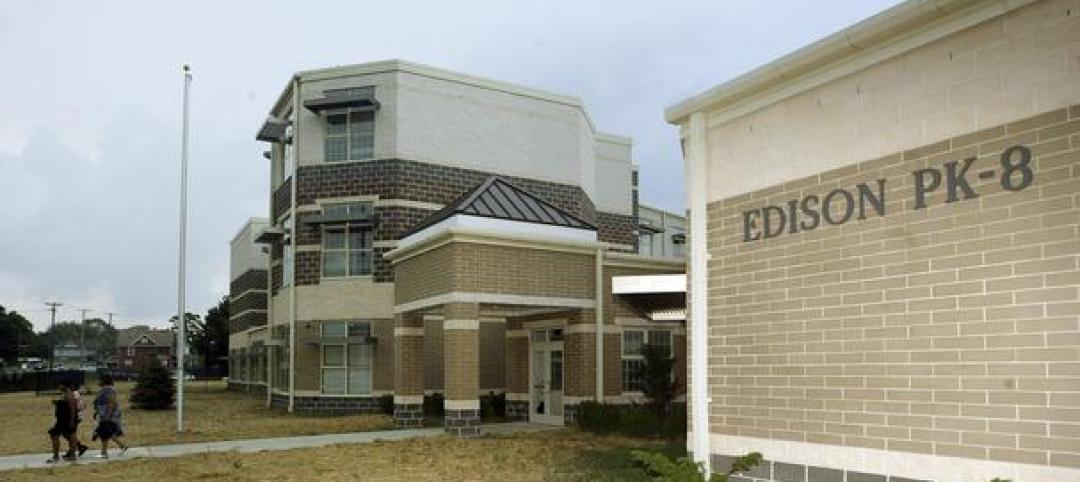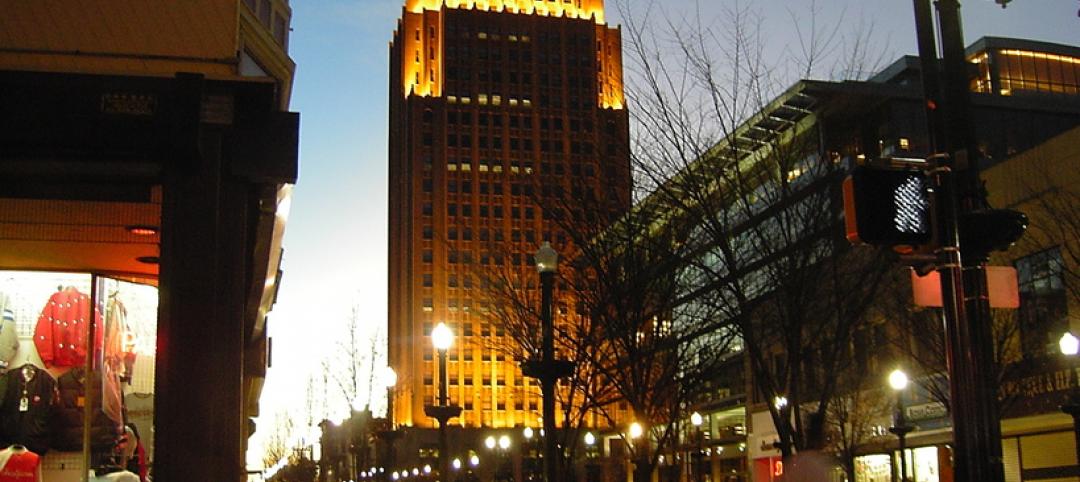Integrating solar generation into building components could boost material and supply chain efficiencies and reduce costs
The U.S. Department of Energy (DOE) Solar Energy Technologies Office (SETO) and Building Technologies Office (BTO) recently issued a request for information to gather input on technical and commercial challenges and opportunities for building-integrated photovoltaic (BIPV) systems.
Roof-mounted solar systems on buildings are more common, but BIPV systems offer other ways to site solar technologies on buildings. The options include directly integrating solar modules into the roof or the building’s facade.
Integrating solar generation directly into building components could improve material and supply chain efficiencies and reduce system costs, the department says. “Innovative strategies that use building-integrated photovoltaics can improve solar integration, enable new designs and uses, and support our decarbonization goals,” says Kelly Speakes-Backman, principal deputy assistant secretary for the Office of Energy Efficiency and Renewable Energy.
The goal of the RFI is to identify and quantify barriers to BIPV deployment and inform future strategy and program development in this area. SETO and BTO are seeking feedback from industry, research laboratories, academia, government agencies, and other stakeholders related to BIPV technologies and markets.
The deadline for responses is April 1, 2022.
Related Stories
| Dec 15, 2011
Dayton, Ohio schools saving $2.6 million annually by building to LEED
On average, green schools save about $100,000 a year on operating costs, including energy and water savings.
| Dec 15, 2011
Building to LEED standards can pose new risks for construction workers
Workers on these projects suffer a 24% increase in falls to lower levels during roof work, which researchers attributed to the installation of solar panels, and a few other risks.
| Dec 15, 2011
NRDC charges Maine governor with weakening green wood requirement
The FSC program is administered through the Leadership in Energy and Environmental Design (LEED) and requires wood to be harvested in a sustainable way.
| Dec 15, 2011
Post-tornado, Tuscaloosa seeks to create walkable urban, retail areas
Block sizes initially were limited to a maximum perimeter of 1,750 feet, with no side of the block being longer than 500 feet.
| Dec 15, 2011
Allentown, Pa. city council asked to repeal union-friendly law
The mayor of Allentown, Pa. asked the City Council to repeal a year-old ordinance that forces contractors to hire union workers for large city projects funded with state and federal dollars.
| Dec 13, 2011
LEED-EB outpaces LEED for new construction
The U.S. Green Building Council's (USGBC's) LEED certifications for existing buildings standard is outpacing LEED for new buildings for the first time.
| Dec 13, 2011
Regulators charge pervasive abuse of construction workers in Connecticut
Federal and state regulators say they have uncovered what they call "widespread noncompliance" with minimum wage and overtime laws in Connecticut's construction industry.
| Dec 13, 2011
Philadelphia mayor signs order for project labor agreements
Philadelphia Mayor Michael Nutter signed an executive order establishing project labor agreements for major public works projects in Philadelphia.
| Dec 13, 2011
Improved code requirements for attic ventilation
The Roof Assembly Ventilation Coalition (RAVC) participated in the development of the code.
| Dec 12, 2011
LEED-EB Outpaces LEED for New Construction
The U.S. Green Building Council’s (USGBC’s) LEED certifications for existing buildings standard is outpacing LEED for new buildings for the first time.















